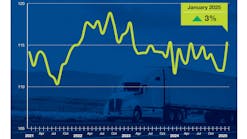The U.S. Department of Transportation’s Federal Highway Administration is providing $52.5 billion in funding to all 50 states and the District of Columbia under the Bipartisan Infrastructure Law, also known as the Infrastructure Investment and Jobs Act.
The $52.5 billion in apportioned funding for Fiscal Year 2022 represents an increase of more than 20% as compared to Fiscal Year 2021 for Federal-aid Highway Program apportionments. This funding is distributed annually by FHWA for the Federal-aid Highway Program based on a statutory formula contained in the Bipartisan Infrastructure Law.
“We are committed to delivering on the promise of the Bipartisan Infrastructure Law, and putting people to work modernizing our infrastructure and making it safer, more sustainable, and more efficient,” said Pete Buttigieg, Secretary of Transportation.
In implementing the Bipartisan Infrastructure Law, DOT and FHWA say they believe the federal-aid Highway Program apportionments, as well as additional formula funding under the Highway Infrastructure Program and discretionary funding to be made available through new and existing program grants, will address long-overdue needs hampering the safety and performance of America’s roads, bridges, and highways.
This funding, announced in December, is intended to help reduce the backlog of major repairs for highways and bridges, and increase the number of communities that have strategies to reduce traffic deaths and serious injuries.
Additional funding to be announced this year will contribute to:
- Fixing up to 10 of the most economically significant bridges in the nation, and repairing more than 15,000 smaller bridges across the country
- Reconnecting as many as 20 communities by removing portions of interstates and redesigning rural main streets
- Spurring the creation of a nationwide network of 500,000 EV chargers by 2030, including a special program for smaller and underserved communities.
“Providing states with information on their apportioned funds … is an important first step in using the resources provided in the Bipartisan Infrastructure Law to make transportation systems across the country safer and more resilient,” said Stephanie Pollack, Deputy Federal Highway Administrator. “We look forward to working with transportation agencies and the communities they serve to use these resources to build a better America.”
Federal-aid Highway Program funds are authorized periodically by Congress in multi-year laws to assist states in providing for construction, reconstruction, and improvement of highways and bridges on eligible federal-aid routes and for other special purpose programs and projects. The Bipartisan Infrastructure Law establishes or continues FHWA programs and authorizes funding for those programs from the Highway Trust Fund.
As the first step, FHWA is distributing these funds through a process known as an apportionment, using a statutory formula to determine the amount available to each state. In addition to the apportionment of funding, FHWA will issue obligation limitation, which allows states to commit a portion of their apportioned funding, for the period through Feb. 18, when the current Continuing Resolution for Federal Fiscal Year 2022 appropriations ends.
Obligation limitation represents the ability of a state or other entity to enter into a project using federal funds, with the federal government making a binding promise to pay or reimburse the state or other entity for the federal share of the project’s eligible costs.
More information is available at fhwa.dot.gov/bipartisan-infrastructure-law/funding.cfm.









